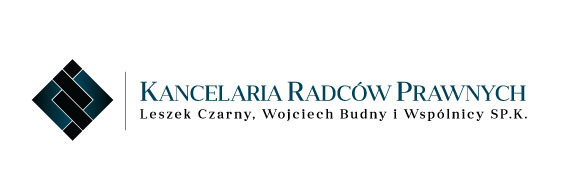Displaying items by tag: Enforcement services Eruope
Serbia

Damir Site Enforcement Officer – Serbia
www.bailiffserbia.com
Below is an outline of how our Office will advance the work on recovering your claim.
Stage 1. Free preliminary case evaluation: We review the case to determine if the company/debtor is still operating as a going concern, confirm the current address and location of the debtor, telephone number, real estate holdings, bank accounts, employment, personal property, financial status and overall credit worthiness, and any information that will allow us to establish an expectation of a positive outcome. There are no field calls and site inspections during this Stage. If we determine a positive outcome is not a plausible expectation, we will make our findings known.
Stage 2. Amicable collection: From time to time we can seek and get the voluntary cooperation of the debtor to pay and satisfy the judgment without any enforcement actions being taken. Any money recovered in Stage 2 will be subject to a negotiable contingency fee, based on a lump sum payment. Stage 2 will usually last no more than thirty days (30). If we are not able to achieve a positive outcome we will proceed to Stage 3. Most clients skip Stage 2.
Stage 3. Civil enforcement proceeding (CEP): There is a government-fixed cost for the CEP and those costs will be presented separately for your consideration and approval. With our findings in Stage 1 & 2, we will proceed to seize, attach and sell property, garnish bank accounts and garnish wages or pensions (if we confirm place of employment), file orders for debtor examinations, post judgment discovery, seize, attach and sell the debtor’s company shares, real estate property, and perform all other civil enforcement actions prescribed by the Serbian 2011 Civil Enforcement and Security Interests Act.
The creditor/client is responsible for pre-payment of all Stage 3 related costs. Court cost and administration fees vary depending on the principal sum that is to be recovered.
These costs and fees will be itemized and presented to the client for their approval. All payments made by the creditor during Stage 3 are enforcement procedural costs that are be recovered from the debtor.
During judgment recovery enforcement proceedings, Serbian laws do not allow any stay of execution, or other legal remedies related postponements of civil enforcement actions, proposed by either of the parties (nor the debtor, or the creditor).
For more information please visit our website.
If what we have to offer is interesting to you we would be delighted to engage in further discussion on how we can launch an effective collection platform. Contact us to tell us about your case.
Poland

The legal chamber Leszek Czarny, Wojciech Budny and Partners limited partnership was founded in 2003 and its partners are: Leszek Czarny, Wojciech Budny and Michał Kuryłek.
The Office renders services to individuals and legal persons. Among the wide range of clients there are, apart from domestic entrepreneurs, also foreign subjects.

DEBT MARKET IN POLAND
HISTORICAL OVERVIEW
Rapid development of the recovery and debt trading market in Poland took place after the year 1990, as a result of the country's economic transformation. Initially, the activities of debt collection companies expanded in two main directions:
• trading of debts of large state-owned enterprises, mainly from the heavy industry sector (mines, smelting plants, arms industry) - main factor affecting the development of this market segment was the possibility of settling tax liabilities with the acquired claims against the State Treasury,
• trading of claims against the national health care service.
Since the mid-90s, interest in commercial receivables has rapidly grown, which in the subsequent years resulted in a dynamic development of companies involved in handling this type of debt.
DEBT MARKET SEGMENTS
Division of the debt market into segments can be done due to, among other things, the type of debt.
According to the most commonly used classification we can distinguish:
• mass debt market (consumer - B2C)
• business debt market (B2B)
The consumer debt market (B2C), also called the mass debt market, refers to the debts of individuals (abbreviation B2C Business-to-Consumer is the name of the relations between a company and a customer). The term concerns debts in the business sector, financial sector, telecommunications and energy sectors. It usually refers to the low-value obligations of households, i.e. invoiced liabilities (telecommunications, gas, electricity), loans, insurance premiums, etc.
The business debt market (B2B) refers to debts of companies (liabilities of enterprises due to other enterprises) related with delivery of goods and services. B2B receivables, unlike B2C, do not have a mass character (the number of debtors in a single creditor is usually small), while the average value of one commitment is significantly higher than in the case of consumer debt.

BUSINESS MODEL
• Purchase of debt portfolio,
• Encashment (commissioned recovery),
• Collection on one’s own.
Purchase of Debt Portfolio - Debt changes its owner and the debt collection company in charge of the debt, assumes the entire risk associated with managing the receivables, and operates in its own name. It is a very expensive business because collectors need to have means to purchase debt portfolios, but they are also able to select a recovery strategy, and they may use such tools and methods that suit them in the longer perspective than the Encashment model. The business model in force since 2005.
Encashment (commisioned recovery) – collection agency operates to its client’s order, i.e. the creditor (the person or company to which we owe money) instructs its debt collection. Debt collection agency recovers the debt on behalf of the creditor, against payment contingent upon the successful negotiation of the debt repayment. Methods and tools for recovery must be agreed with the person ordering the recovery and the duration of recovery is usually shorter than in the case of debt portfolios recovery. Predominant business model up to 2005.
Collection on one’s own - ruling model in the 90-ties of the last century.
MARKET GROWTH FORECAST
• Increased value of loans granted,
• Increased tendency of creditors to outsource debt recovery,
• Growing number and value of debt buying transactions.
SUMMARY
Domestic companies are still growing rapidly, banks are increasingly willing to sell still new debt portfolios, and large multinational companies have joined the struggle for the receivables on sale. In this context, it is not surprising that the Polish market is held up as a model for other countries in Central and Eastern Europe, and it is no longer perceived as a developing market, but a mature one.
The mere glance at the figures shows that over the years, debt trading in Poland has become a serious and profitable business.
It is estimated that still in 2011-2012, retail portfolios with a nominal value of about PLN 7 billion were sold. Today, one can talk of a supply of up to PLN 16 billion. Moreover, it is possible that in the coming years, this result will be further improved as sill relatively few portfolios secured by mortgages get on the market.
For more information, visit our website: www.czarny-budny.pl
Ireland

WALES AND CO SERVICES
Wales and Co Solicitors www.walesco.ie
Tel No- 00 353 1 2935110
Email-
We are an established firm of Solicitors/Lawyers specialising in debt collection
We undertake amicable debt collection, issue of legal proceedings, obtaining judgment and enforcement of judgments through the Court process.
We undertake cross border collections through the Connexx network.
We can review your paperwork to advise you of our opinion as to the collectability of your debt.
We can advise you pre -contract stage as to the issues that you would need to be mindful of before entering into a contract with your customer in Southern Ireland, in particular to ensure that your terms and conditions are in accordance with Irish law and are appropriate to the contact..
Our particular geographical jurisdiction is Southern Ireland.
Re costs these are calculated on a case by case basis and we suggest you contact us at for a specific quotation or for further information.


